New TV series explores the history of the human brain

Peter Lund Madsen - 'HjerneMadsen' - doctor, MD, specialist in psychiatry.
Follow Danish neuroscientist Dr Peter Lund Madsen as he shares his version of the history of the human brain: as one long, never-ending journey towards greater freedom. The series comprises 10 episodes about our amazing brain – from the Big Bang to AI.
Danish neuroscientist Dr Peter Lund Madsen is the brilliant host of a new TV series which deploys plenty of science and humour to explore perspectives, stories, angles, and correlations between the development of the universe, planet Earth, humanity, and the human brain.
Using the brain as the angle from which to tell the story gives viewers the big picture about evolution – before and after humans and the brain were fully developed. Dr Madsen conducts experiments, interviews experts and travels the world to the places where important events occurred.
‘This is some of the best TV I’ve ever had the privilege of making,’ says Madsen.
‘The series is all about the human brain and how it makes us the strangest animal on the planet. Some of the History of the Human Brain is quite scientific and technical, but I think we’ve done a good job explaining things so everyone can understand. We enjoyed a good deal of creative freedom and worked hard to inject a bit of excitement and drama into the story, even making it a bit scary, as we take viewers on a tour of a Viking fortress and a Stone Age village,’ he explains.
The first of the 10 episodes airs on the Danish TV channel DR2 on Thursday, 13 July at 9 pm, the regular spot for the show. The more modern brain and sensibilities might prefer to binge-watch the entire series on the DR TV streaming service.
The journey towards freedom
Since the first humans evolved, we have gradually improved our ability to exert influence on the development of our surroundings. Although the brain is part of evolution, it actually hasn’t changed much since the Stone Age. But the arrival of humans heralds a significant shift in the evolution of the planet. We speak of the time before and after the human brain – of millions of years of evolution being replaced by a radical revolution with the power to change the planet.
The series has an entertaining yet scientifically objective tone, and the content has been thoroughly researched. The History of the Human Brain targets the widest possible viewing public and encourages young people to take an interest in science.
‘We also want to inspire young people to think about how we and the world have come this far, what we can expect of the future, and how knowledge about nature will be useful in the future we all share,’ Madsen concludes.
Jan Egebjerg, SVP and Head of Grants & Prizes at the Lundbeck Foundation concludes:
'At the Lundbeck Foundation, we have a special focus on the brain. We grant more than half a billion kroner annually primarily for brain research – including projects that aim to provide knowledge about the brain. Therefore, it is with great pleasure that the TV series now will be airing on Danish broadcast television and online – I am convinced it will inspire viewers of all ages to take more interest in the brain and science," says Jan Egebjerg.
The series was produced with funding from the Lundbeck Foundation.
About the 10 episodes
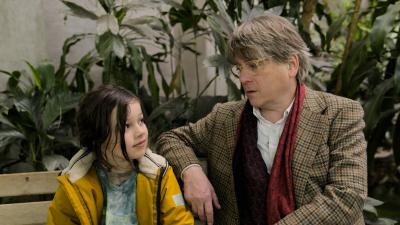
Episode 1 – The Beginning: The first episode is about the emergence of life on the planet and the very first brains. Plants sense the world and behave like humans in some ways, while insects can learn and solve problems. Dr Madsen is joined by his nine-year-old nephew Modig Lund Madsen, who knows everything about animals. Modig agrees to teach Uncle Peter, to help him understand and apologise to some of the animals that the good doctor has mistakenly and unfairly misunderstood earlier in his career.
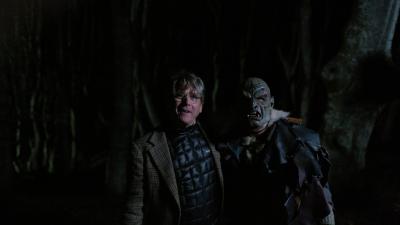
Episode 2 – Perceiving Reality: Is our perception of reality merely an illusion? And is the human brain constantly playing tricks on us? Dr Madsen conducts experiments to prove that the brain tends to interpret the information it receives from our senses very freely. World renowned neuroscientist Dr György Buzsáki explains how the brain’s only job is to control the body. Veterinarian Dr Kirstin Dahl-Pedersen talks about how animals perceive reality. And we meet the two ghosts that once appeared bright and clear to Madsen, an experience as real to him as everything else he witnesses on a daily basis.
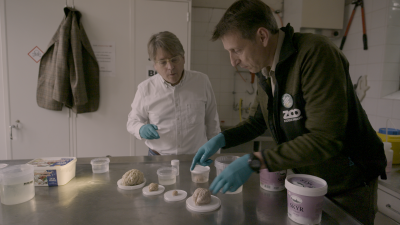
Episode 3 – Memory: Why do two people so often have completely different memories of the exact same event? What do animals remember? What’s the difference between motor, factual and episodic memory? How do our memory and childhood recollections influence who we become as adults? And who were the only people in the world to win the TV game show Who Wants to Be a Millionaire twice?
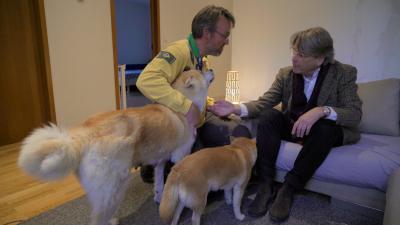
Episode 4 – Emotions and planning: What makes a Japanese dog run to the train station every day to greet a master who died years ago? What are emotions good for? How smart does an animal have to be before it starts making complicated plans? Is the only difference between humans and animals the fact that our big brains allow us to imagine things that don’t exist and turn them into a reality?
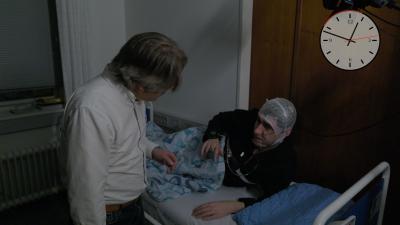
Episode 5 – The Brain and Sleep: As a neuroscientist, Madsen once specialised in sleep studies. We reconstruct one of his experiments, in which the brain waves of a sleeping person are displayed on a monitor so we can follow their journey through the dream world. This episode seeks to answer the following questions: Why do we need sleep? How much sleep do we need? How do we sleep? What does it take to fall asleep? What happens in the body and the brain during the different stages of sleep? What do we know about why we sleep? We also relive one of Madsen’s worst dreams and one of the best.
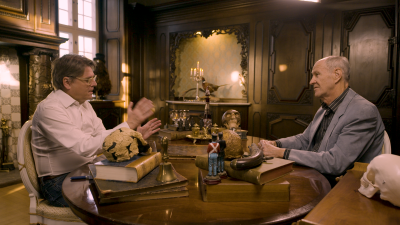
Episode 6 – Where do humans come from?: This episode is about the origins of humankind. Madsen and geneticist Dr Peter K. A. Jensen recount everything we know so far about the origins of the human race. What makes humans so different from all other species on Earth? How did we come to dominate this amazing planet? How did humans evolve from apes? Why are we humans the only animals allowed to leave the Zoo when it closes for the night?
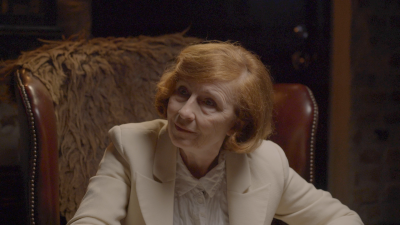
Episode 7 – Evil: Are humans good or evil? Why are communities so important to us? Why does a 63-year-old man start crying whenever he is close the school he went to more than 50 years ago? Why is it possible to hypnotise someone to kill another human being? How can we tell by looking at a brain that it is purely a machine for thinking rather one for emotions? What is the difference between a psychopath and a sociopath? And why did good neighbours come to blows in the Faroe Islands in the 1950s?
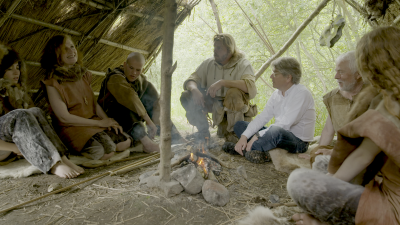
Episode 8 – Anxiety, Fat and Sweets: Why are people so anxious? You don’t have to be afraid to have an anxiety attack. It never lasts long. And if it does happen often, help is at hand to confront your anxiety. But why do we do all the wrong things?
Why do we eat unhealthy foods? What causes road rage? Our brains are basically the same as Stone Age ones. Our surroundings have changed more than the human brain. Maybe that’s why we stuff ourselves with junk food and are anxious about things that are no longer dangerous.
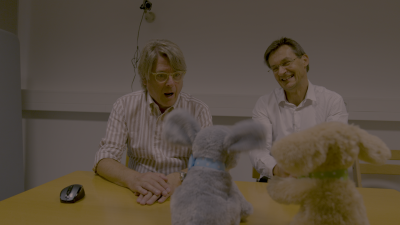
Episode 9 – The Brain from Birth to Death: How does the brain develop from birth to death? Scientists at Aarhus University are studying children’s brains.
How do you find out what a brain is capable of before a baby has learned to talk? Which stages of development are the most important from birth to death? When is the brain fully developed? Why do teenagers sometimes behave weirdly? How can you get through to your teenager? Which period of life is the best? And how can we reduce the risk of dementia?
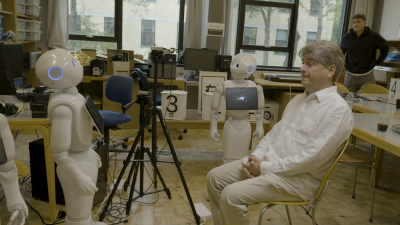
Episode 10 – The Future: What will the future be like for the brain? What catastrophes have we already survived? How have language and civilisation evolved? What can the past tell us about the future? What discoveries have done the most to prepare us for the future? Will AI overtake the human brain? Does humanity even have a future? What advice would a Stone Age person give a modern one about the future?